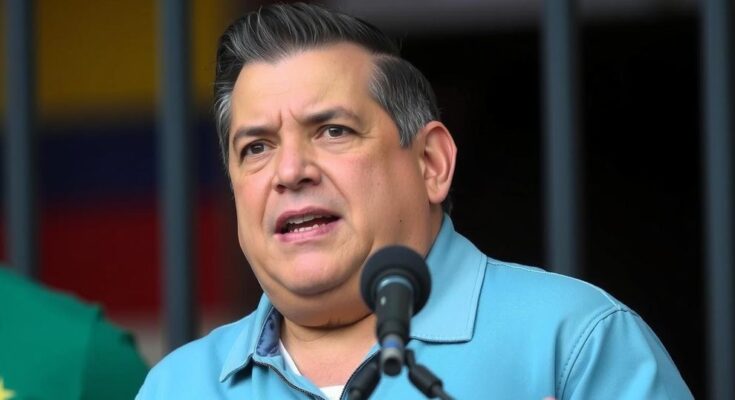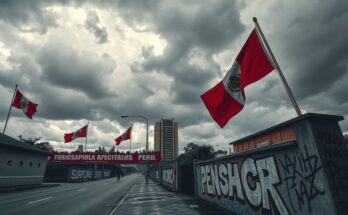Colombia has offered to manage the Argentine embassy in Caracas to protect six aides of opposition leader María Corina Machado amid increasing repression from Maduro’s government. Negotiations involve securing safe passage for these officials and address broader regional diplomatic tensions following significant allegations of human rights violations in Venezuela. The situation underscores Colombia’s significant involvement as it navigates its relations with Venezuela and its partners.
Colombia has proposed taking the Argentine embassy’s custody in Caracas to safeguard six aides of opposition leader María Corina Machado, who have taken refuge there since March. Foreign Affairs Minister Luis Gilberto Murillo, addressing a conference in San Andrés, revealed that Colombia is in direct talks with the Venezuelan government to facilitate their safe passage. Venezuela appears open to cooperation, contingent on Argentina releasing a yet-to-be-named individual with connections to their government, alongside Ecuador’s release of former Vice President Jorge Glas.
The ongoing negotiations illuminate Colombia’s heightened engagement amid the political crisis in Venezuela, especially as Maduro’s administration intensifies its crackdown on dissent following his disputed re-election. The aides have faced threats of arrest under allegations of terrorism linked to Machado’s opposition campaign. Argentina severed diplomatic ties with Venezuela post-election, transferring embassy management to Brazil, since both nations have been at odds regarding human rights violations and the status of political prisoners.
Meanwhile, the six opposition figures have encountered escalated harassment, including power cuts and access restrictions to essential resources at the embassy. They include key players like campaign manager Magalli Meda and key advisors Pedro Urruchurtu and Claudia Macero. With tensions flaring, both Machado and her stand-in candidate, Edmundo González, who resides in Spain, have expressed intentions to assume office January 10, further complicating the situation.
On orders from President Gustavo Petro, Murillo has also traveled to Brazil and Ecuador, seeking resolutions. Brazil’s foreign ministry maintains its management of the embassy until a new state is appointed by Argentina. In response to the deteriorating circumstances, Argentina has asserted that the violations of human rights in Venezuela are evident under Maduro’s regime. Despite strained relations post-vote, Brazil and Venezuela are rekindling dialogues, although President Lula da Silva has yet to recognize Maduro’s electoral victory, urging for transparency in electoral processes.
This article examines the complex geopolitical landscape surrounding the ongoing struggle for power between the Venezuelan government, led by President Nicolás Maduro, and opposition figures like María Corina Machado. The interaction between Colombia, Ecuador, and Argentina is pivotal as they navigate humanitarian concerns and diplomatic relations amidst a backdrop of charges of terrorism against opposition members. The significant diplomatic realignment following Argentina’s break with Venezuela adds layers to this matter, as do international human rights considerations that the United Nations has highlighted. Colombia’s involvement illustrates a shift in regional diplomacy in response to growing repression in Venezuela.
The ongoing situation reflects the delicate dynamics in South America, where historical alliances and current political strife intersect. Colombia’s offer to manage the Argentine embassy and secure the safety of opposition representatives highlights an evolving diplomatic relationship amid Venezuela’s intensifying repression against dissenters. As international stakeholders engage in negotiations, the fundamental rights and political freedoms of individuals in Venezuela remain at the forefront of concern for the global community.
Original Source: www.bnnbloomberg.ca




